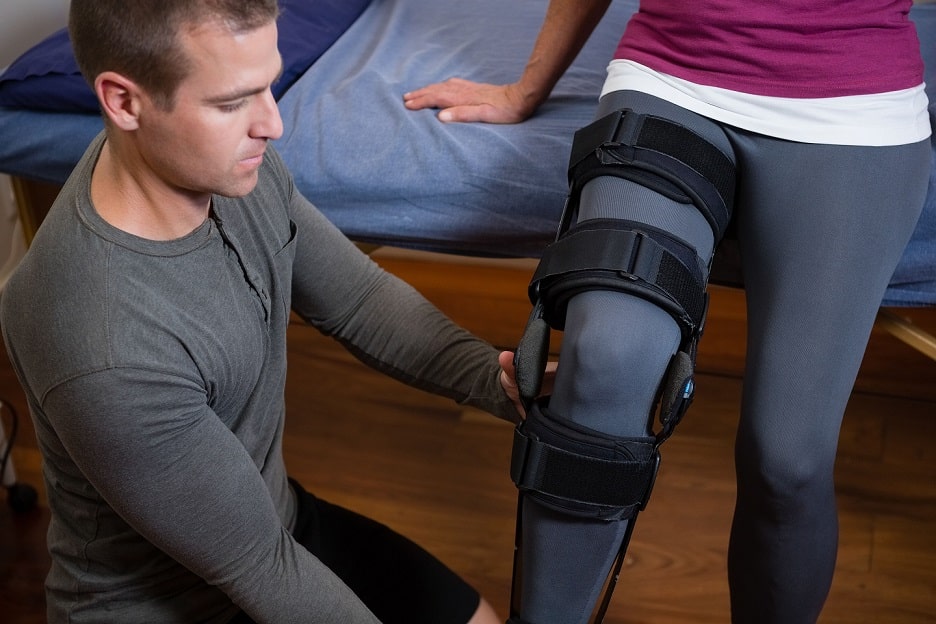 The human body is a complex organism. I won’t even begin to try and fully explain (or even understand) how each and every little part of us works – and to be honest, we’re not medical experts here so we leave that to the professionals. What we do know however is whether you can make a claim for compensation for any injuries you have sustained, and we can represent you for a case if we feel we can win it for you.
The human body is a complex organism. I won’t even begin to try and fully explain (or even understand) how each and every little part of us works – and to be honest, we’re not medical experts here so we leave that to the professionals. What we do know however is whether you can make a claim for compensation for any injuries you have sustained, and we can represent you for a case if we feel we can win it for you.
As expert personal injury lawyers, we know exactly how to make the most of your compensation claim. So when it comes to nerve injuries, we know, appreciate, and understand that there is a lot to take in to account.
Nerve damage can be serious. For anyone who is suffering, or has suffered, with nerve damage, I’m preaching to the converted. The problem is that it’s very easy to end up damaging the nervous system, and the impact it can have can be potentially huge.
Due to the complexity of the nervous system, it’s very difficult to all variations of nerve injuries. However, there are generally three common ways to injure a nerve:
- Compression injuries, where most people will recover from, and the nervous structure itself will normally remain intact (often not classified as too serious). You will naturally end up with some form of paralysis, which is usually temporary.
- Crush injuries which can leave you with paralysis as well; but again you will commonly recover over time.
- Contusions, stretching, or laceration damage to the nerve – which are more serious on the scale of whether you may recover or not. Dependant on how bad the damage is can depend on whether the nerve will recover or not.
The issue for any actual damage to the nerve is whether the nerve will be able to recover by itself or not. Nerves, according to many experts, can either make miraculous and fantastic recoveries, or leave you with little or no chance of any recovery at all. The other problem is that it can take years for nerves to regenerate, and it’s difficult to gauge whether they will make a recovery or not. I.e. you could be waiting two years and nothing will ever happen. So it’s a painstaking waiting game.
It goes without saying of course that the inconvenience an injured nerve has on the victim can be huge. If you have escaped with some minor temporary sensory damage (i.e. loss of feeling) then it may not be so bad; but if a part of your body such as a foot or a hand is paralysed due to the damage, you will face obvious difficulties – especially if the recovery is going to take a long time.
You may not be in a great deal of pain with the nerve injury, but the paralysis that it causes is what we take in to account for the suffering for the claim. You don’t have to be in physical pain to make a claim as long as you are suffering adversely in some way.
So, let’s use for example the condition called foot drop. This is a condition you can end up with if your Common Peroneal Nerve is injured, which is commonly injured through traumatic knee injuries. The nerve itself can be severely stretched or even snap. This nerve is responsible for “dorsiflexsion” which is a posh way of saying moving your foot up. So, imagine you’ve injured this nerve, which paralysis the muscles that raise your foot – your foot will be constantly dropped downwards as you can’t keep it straight or raise it up. How will you walk normally? With no ability to lift you foot up, walking the normal way becomes impossible. You could raise your knee up whilst walking or twist your foot at a sort of side angle to compensate for the drop, but this can cause damage to your hips and knees as well.
So, although the condition may not be painful (aside from some pins and needles and sensory shock pain in the numb areas), being unable to walk properly is not a nice thing to have to suffer with. It’s all about the inconvenience it causes to you; e.g. in this case again for foot drop, having to wear an orthotic splint to keep your foot raised and allow you to walk almost normally. Imagine you have to wait two years for the foot to start working again – that’s two years of wearing a splint for walking, and wearing one at night time to stop your Achilles tendon from shrinking (which commonly happens if foot drop is not treated correctly). Hey – try getting a sock on your foot without the ability to properly wriggle your foot in to the damn thing. It’s hard!
I actually used foot drop as an example as I unfortunately have the condition from a nerve injury myself. So I’m speaking from experience here, so you can trust in what I have to say! But the overall point I’m making is that you don’t necessarily have to be in physical pain to make a claim – discomfort and inconvenience from paralysis is well worth claiming for!
Besides, referring to my earlier point about nerve injury recovery, it’s not always good news. If the damage is extensive, you may need nerve conduction studies to see if there is any life whatsoever in the muscles that have been affected by the nerve damage. If there isn’t, surgery to take a look at the damage, and repair surgery may be required. So you have to go through an operation in many cases as well. And unfortunately surgeries such as nerve grafts still have waiting times for recovery that can go in to years and years.
The surgery itself will leave you open to risks of infection and complication. Taking the example of a nerve graft, were less important sensory nerves are taken from another area of your body to repair the damaged section of nerve, you may be left with a loss of sensation in some other area of your body. Other surgical options (as grafts aren’t 100% successful) may include tendon transfers to essentially move tendons to control other parts of the body – but they may also leave weaknesses that will never fully recover.
So overall it’s quite easy to see that the impact of a nerve injury can be absolutely substantial – and this is reflected in the claim for compensation. We can also take in to account medical costs, physiotherapy needs and costs, adaptation costs (for example needing an automatic car if your left foot is paralysed from nerve damage), care and assistance needs – there is a lot to look at.
That’s why it’s important to get an expert specialist personal injury lawyer to represent you for your claim for compensation. With nerve damage, you need a lawyer who knows what they’re doing to make sure you get the maximum amount of compensation and the best medical help possible to get you back to normal as much as possible and as quickly as we can. So don’t hesitate to call our free specialist claims helpline on 0800 634 75 75 for advice, help, and expert representation.
Hey – you’re more than welcome to ask for me directly given I know how you feel!

 The human body is a complex organism. I won’t even begin to try and fully explain (or even understand) how each and every little part of us works – and to be honest, we’re not medical experts here so we leave that to the professionals. What we do know however is whether you can make a
The human body is a complex organism. I won’t even begin to try and fully explain (or even understand) how each and every little part of us works – and to be honest, we’re not medical experts here so we leave that to the professionals. What we do know however is whether you can make a 









